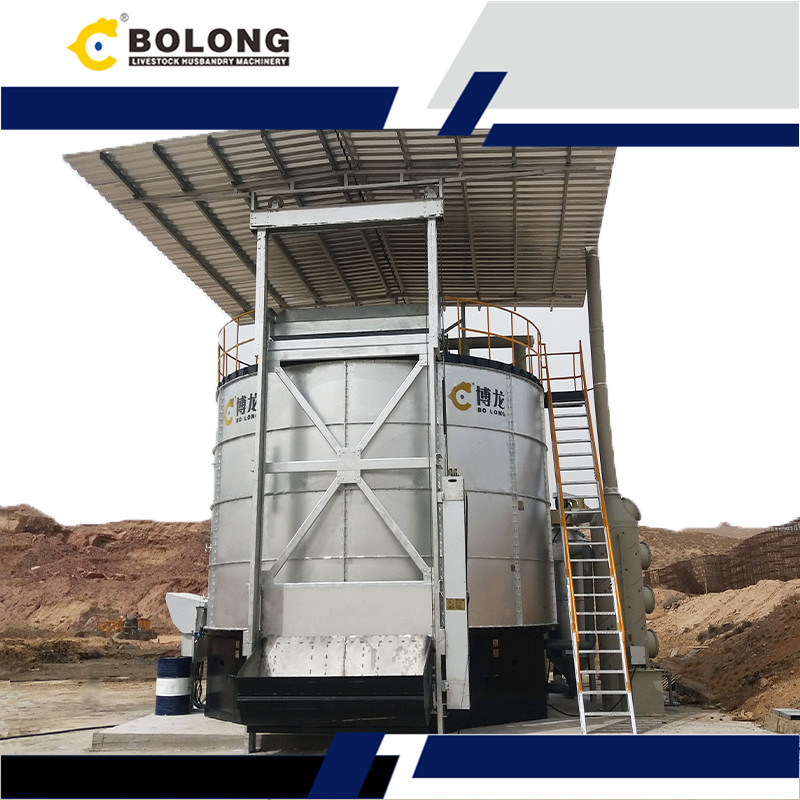In the context of modern large-scale farming, the treatment of livestock and poultry manure has gradually become the focus of the industry. And with the introduction of new national environmental protection policies, traditional composting treatment methods can no longer meet the environmental protection and efficiency needs of large-scale farms.
At this time, livestock and poultry manure composting tank that achieve the transition from “harmless treatment” to “resource utilization” have become the preferred solution for major farms. Perhaps you will wonder “Why has the livestock and poultry manure composting tank become the preferred solution?” Don’t worry, you will find the answer to this question after reading this article.

With the expansion of large-scale farming, the output of livestock and poultry manure has increased dramatically. Traditional manure treatment methods, such as open-air composting, can no longer meet the needs of large-scale farms. In recent years, the country has become more and more stringent in its requirements for the control of aquaculture pollution, and has introduced new environmental protection measures and policies, which are enforced in some areas.
From the initial “harmless treatment” to the current “resource utilization”, the market demand for organic fertilizers continues to increase. As an efficient and environmentally friendly treatment equipment, livestock and poultry manure composting tank can not only effectively treat manure, but also convert it into high-quality organic fertilizer, which has great market potential.
Inefficiency: Traditional composting takes 1 to 3 months to complete fermentation and is greatly affected by environmental and weather conditions. For large-scale farms, such a long treatment cycle cannot keep up with the growth rate of manure.
Environmental hazards: A large amount of ammonia, hydrogen sulfide and other odorous gases will be produced during the composting process. Traditional composting cannot effectively treat these odors and will pollute the air. In addition, the harmful substances produced during the composting process will also seep into the ground and pollute the soil and groundwater.
Energy consumption and cost issues: Traditional composting generally requires regular manual turning and care, which not only has high labor costs, but also occupies a large area. Compared with livestock and poultry manure composting tank, traditional composting is inefficient and not cost-effective.
Bolong livestock and poultry manure composting tank uses aerobic fermentation tech. Auto-feeding, smart temp control and auto-mixing cut traditional months-long composting to 7 days, enabling 24/7 production—farms get “same-day feeding & discharging”. Fully automated, it minimizes manual work, handles tons daily, boosts efficiency by 80% vs traditional methods, and offers stable, high-efficiency solutions for large-scale production.
Efficient and energy-saving composting equipment enables low-consumption operation via multiple technologies: Its heat exchange system recycles exhaust heat to preheat fresh air, slashing extra heating use. The tank uses broken bridge insulation with polyurethane filling to lock heat and reduce loss. Hydraulic drive and auto-controls cut manual work, lower labor/electricity costs, and boost all-round energy savings and efficiency.
Bolong livestock and poultry manure composting tank has a vertical fully enclosed design, blocking harmful gas and sewage leakage at source. Its 304 stainless steel inner wall resists corrosion for long-term leak-free use. With heat exchange deodorization and a spray tower, it absorbs ammonia via water-solubility, meeting emission standards with strong deodorization—solving traditional composting’s odor issues. It fits green concepts and environmentally friendly organic fertilizer production equipment traits.
Bolong composting tanks provide models of various specifications, suitable for farms of different sizes, from small farms to large breeding groups. It is suitable for a wide range of raw materials, including livestock and poultry manure, carcasses, kitchen waste, etc., and the composting tank does not need to add auxiliary materials when treating livestock and poultry manure, and raw materials with a water content of 50%-70% can be treated.
Compared with traditional composting, composting tanks have obvious advantages in efficiency, environmental protection and economy. Through technological innovation and customized solutions, Bolong livestock and poultry manure composting tank has become the preferred brand for livestock and poultry manure treatment. Choosing a composting tank is not only a commitment to environmental protection, but also a wise choice to improve the economic benefits of the farm.
If you need to know more about composting tank models or obtain customized treatment solutions, please contact us now!